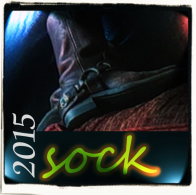A couple years ago, reading to kindergarteners, I had to pause and explain a barn to them. Red building, animals, in the picture in their storybook — they got that. They didn’t know the essence of driving down roads where barns stood on duty behind hundred year old family farmhouses. Didn’t know the gaps of daylight between rough-hewn siding, the smell of hay and manure and sweat, the forbidden dangerous glee of daring to jump from hayloft to floor. Didn’t know what it was to be absent all day, unaccounted for, only coming in for dinner smelling faintly of puppy and horse, hands and face smeared, hay jutting from loosened braids.
There comes a point where things that once had meaning no longer make sense.
We can’t cling to this or mourn it; it just is.
Yet it is a daily part of conversation. “Ebook or print book?” hashtags debate all over twitter. Do we despise the ability to zap books instantly to our palm, if their existence eradicates the crisp smell of printed pages? Do we eye-roll at students who bypass libraries, assuming anything worth knowing has its own site?
This week I was reminded of another side to this: what of things we wanted gone? Do we bemoan these, as well, once they’ve left us?
Yes, in their own way. Drive out evil, but record it, turn a light on it, that it should not be repeated.
Arundhati Roy turns attention on child molestation, Toni Morrison on abuses against African-Americans, Lisa See on Chinese foot binding, Michael Cunningham on the AIDS epidemic, Jane Austen on gender bias in landholding rights, Jay Asher on suicide. German occupation, 9/11, drug and alcohol abuse, slavery, child neglect, fear of the wild, poverty. Those examples, just from the shelf in front of me, fall short of all literature seeks to record of what we wanted purged.
What is interesting is the feared void that follows such a purge: First the purge, then the teaching — the books, the movies, the retelling — to keep what was purged alive in our minds.
Much like needing to explain a barn, as mother to two young boys, I’ve had this thought close at mind over the past weeks, on heels of the controversy over the headline about Jeremy Lin, so stupidly published as “A Chink in the Armor.”
Author Matthew Salesses has come to my attention over the past year for his insight and intelligence, in writings I’ve followed through Twitter. He is someone I can identify with, as a sensitive parent, thinking ahead to the world his daughter will grow up in, but reflecting back, also, on the opportunities and exposure of his childhood. What I learned about him today is his perspective as an Asian American, which he reflects with exceptional candor and sensitivity in his essay, “Different Racisms…the Rules of Racism are Different for Asian Americans,” on the Rumpus.
After reading it, I tweeted my appreciation to him.
Seconds later, I couldn’t help adding: “FWIW, if I heard the word chink, an Asian slur would be the hundredth+ meaning I would think of. Dumb? Or just not my thinking?”
Tweets are limited in dimension. Even as I clicked to send this to him, I worried, considering the heart he bravely peeled open in his essay, would he think I was arguing, that I was trying to minimize or dispute the cruel things said? So I later clarified with him: really, for better or worse, I hadn’t heard someone use “chink” to describe a person since I was in high school. (Which was, um, not last year.)
In fact, in describing the barn, above, I began to say “chinks of light” come through the planks, an accurate representation of what I meant — but was suddenly disproportionately conscious of the word’s double-meaning, from reading his essay.
It’s not that Matthew’s essay was the first time this has occurred to me.
I spent my early childhood in Detroit, in a mixed race, mixed religion neighborhood. I’ve lived in homogenous, protestant white communities, but at the moment live in a neighborhood where we are the white minority, in race and culture. In Charlotte, North Carolina, I was bussed into the inner city and taught by a teacher who’d marched with Martin Luther King. I crave diversity in my friends and cultural interests, and tend to be a little hyper-sensitive about racism and other forms of bigotry.
But what happens, 20 years into “political correctness,” when we have lived so long shunning slurs?
In the first years, like me avoiding “chink” in describing the barn, we are hypersensitive of the Words We Must Not Say. We know these words. We catch them before they escape lips. We flinch when we hear them said. If we’re good, we roll eyes or even yell when friends try to slip them in as humor. (Equally, we know there are those who savor saying them in badness.)
Now comes the weakness. When do we become like kindergarteners, not knowing a barn?
Even for point of illustrating, I refuse to type a list of slur examples to make the point. I. will. not. type. those. words.
So how do we continue to know them and the impact they have? How do my sons know I’d skin them alive for saying the n-word if I’ve purged it so fully that such conversation never comes up?
In this, do we reach a point where we don’t remember the words we were to avoid?
Quite fairly, Matthew challenged me. Would I really not think chink was a slur “even if [I] heard it addressed to an Asian person?”
Have I really never heard “chink” said of an Asian? Have I never witnessed an Asian friend feel marginalized? Shine a light on something and you see — or remember — what did not otherwise come readily to mind. In North Carolina, in the all-white neighborhood where we lived one year, my girlfriend from the Philippines shared her immense pain and rejection over how different her family was from the families around us — no matter that I loved her family and remember her grandmother’s fish and rice (bane of her existence), affectionately, to this day. I went to high school outside of DC, where Asians made up 20-30% of our school (some born in the US, some whose parents were working temporarily in government agencies, a few who spoke little English). I read Matthew’s essay now and remember — in nauseous horror — that a beautiful friend of mine, who all my friends thought very highly of, was nicknamed Chinky. Did she like it? Did she accept it and say nothing? Did we ignore it blindly? Does she avoid being facebook friends now out of long ingrained pain caused by it?
Matthew’s essay raises the point that racism toward Asians is often dismissed as being flattering, as if that made it okay.
There’s another truth. Within the first chapter of the textbook for my education course on Diversity, I read one sentence that struck me as very powerful. Statistics proving bias were not disputed. But surveys reveal that the race(s) and gender favored by the biases do not associate themselves with originating the bias. In the survey, it was white males saying they don’t think of themselves as wanting to perpetuate stereotypes that held others down, and saw themselves as products of the bias as much as those hurt by it. (I can’t help add that the grass isn’t greener: As a teacher, I’ve witnessed significant prejudice and judgment of white boys from teachers and peers, who blatantly judge them lazy, disruptive, trouble makers, etc. But that’s very different trend.)
The point of the survey grabbed me because I think the disassociation from responsibility goes further than just those at the top of the hierarchy. Take someone like me. I am a writer, well educated, particularly focused on understanding diverse cultures worldwide. I personally feel no prejudices against races or genders or religions. Know myself, rather, to crave differing perspectives.
Do I then become part of the problem? Because a person like me — a person who wants us all to get along and not re-engage prior offenses — isn’t going to take the preemptive step of saying, “Remind me of all the things I want to avoid doing.” I’m going to assume, just because my heart is in the right place, my words and actions will be without barbs. This isn’t just random theorizing. For years, I’ve called my boys my “monkeys.” I’m a friendly teacher and sometimes nicknames slip out when talking to a student. I came up cold one day, having just called a boy in my class monkey and wondering, “Wait. Is he going to think, ‘Aw, she likes me as much as her son’? Or is that a slur for something?”
Before teaching, I worked years in the courts, where political correctness was all consuming. No Christmas tree without a menorah beside it. No menorah or Christmas tree the year no one could figure out what to do about Kwanza or Ramadan. Race, disability, religion, gender, nationality, native language — we danced to be fair and equal with all, to the point even friends weren’t sure how to talk to one another any more.
But here I am, now dumb in my blindness to what might hurt others, bleached beyond sensitivity, back into dangerous territory.
Working to avoid pitfalls doesn’t mean they are no longer there. The fact we haven’t said a word or heard it lately doesn’t means bigotry isn’t alive and well — in memory or continuing experience.
It is a curious thing to wonder, are we at the point where remedial vocab training is needed? Do I teach my sons the words, the prior hurts, the things done wrong in the past, just to say, “Don’t do that”?
In literature, at least, we have the treatment, if not the cure. I told Matthew I thought his essay important. As happens throughout literature, he shines a light on one experience so that we can’t ignore the hurting that goes on, despite any best intentions.


















Thank you for writing this, Elissa.
LikeLike
Gladly. Your essay was very meaningful. Thanks for responding.
LikeLike